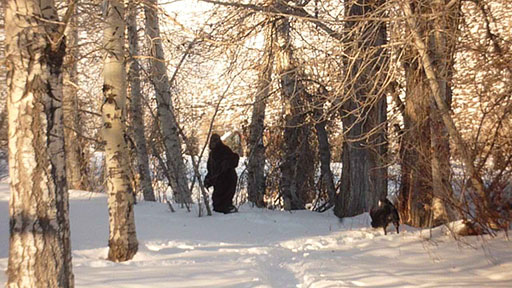Hydrophilia
Becoming water wise.
 Photo courtesy of Britt Udesen (aka Idaho Squatcher). See her videos on YouTube.
Photo courtesy of Britt Udesen (aka Idaho Squatcher). See her videos on YouTube.
If you have a carbon footprint, you also have a water footprint. While the idea of calculating your carbon footprint has caught on and carbon calculators are all the rage (for good reason), few are paying attention to their water footprints. We all know that as Americans, we are the Sasquatch of the planet, rapaciously consuming vast quantities of raw materials, animal products, energy, water, you name it. But, did you know that every time you turn on the light switch, not only are you consuming energy and adding to your carbon footprint, you are also adding to your water footprint? The volume of water required to produce power depends upon the energy source, and varies from zero for wind energy to a whopping 70 m3/GJ for biomass energy. Thus, powering one home for a year on electricity produced from oil implies a water footprint of some 9,500 gallons of water (assuming one home requires 36 GJ power per year). Everywhere we see a carbon footprint – in the fertilizer, gasoline, electricity and other inputs required to raise, process, transport and refrigerate our food; in the mining and processing of raw materials for electronics; or in the production of cotton for and manufacturing of clothing; we see a concurrent water footprint, the largest portion of which is often directly connected to energy use.
| Primary energy carriers | Global average water footprint (m3/GJ) | |
| Non-renewable | Natural gas | 0.11 |
| Coal | 0.16 | |
| Crude oil | 1.06 | |
| Uranium | 0.09 | |
| Renewable | Wind energy | 0.00 |
| Solar thermal energy | 0.27 | |
| Hydropower | 22 | |
| Biomass energy | 70 (range: 10-250) | |
Source: Water Footprint Network
So, when you pause to decide whether or not to turn that light off, you might think about how you’ll be donating some water to the Chinook salmon fry in the nearest river. Turn it off. (During Earth Hour this past weekend (March 26, 2011 at 8:30 pm), people across the planet did just that as a stand against climate change. See what you can do to Go Beyond the Hour.)